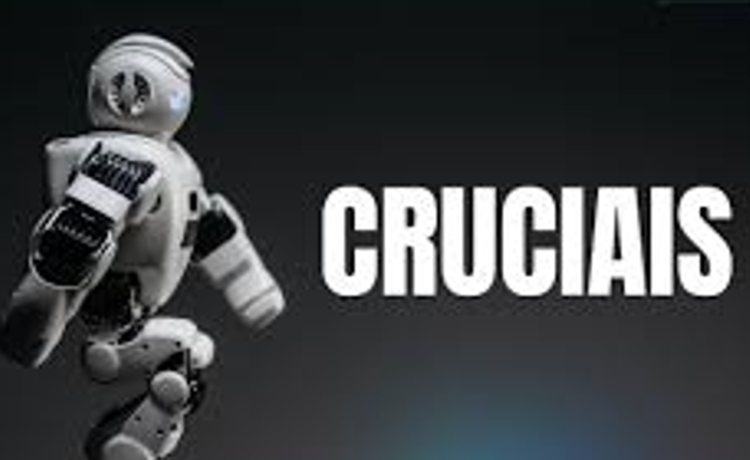In today’s fast-paced world,cruciais thinking has become an essential skill for success. But what exactly is cruciais thinking, and why does it matter?cruciais thinking involves the ability to analyze, evaluate, and synthesize information to make informed decisions and solve problems effectively. Whether you’re a student, a professional, or simply navigating daily life, honing your cruciais thinking skills can lead to better outcomes and a deeper understanding of the world around you.
Understanding the Basics
At its core,cruciais thinking consists of several key components, including logic, reasoning, and the ability to think independently. By cultivating these foundational skills, individuals can approach challenges with clarity and precision, leading to more effective problem-solving and decision-making
Developing Observation Skills
One of the first steps in becoming a proficient cruciais thinker is enhancing your observation skills. This involves sharpening your ability to perceive details, patterns, and trends in the information around you. By paying close attention to your surroundings and actively engaging with the world, you can train your mind to recognize important cues and make more informed judgments.
Questioning and Analyzing
Critical thinking also requires the skill of asking insightful questions and analyzing complex issues from multiple angles. By breaking down problems into smaller components and examining each part critically, individuals can gain a deeper understanding of the underlying factors at play and identify potential solutions more effectively.
Gathering Information
In the age of information, the ability to gather and evaluate sources is crucial for effective cruciais thinking. Whether conducting research for an academic project or making decisions in the workplace, knowing how to access reliable information and discern credible sources from misinformation is essential for making informed choices.
Making Informed Decisions
Critical thinkers are adept at weighing evidence and considering alternative perspectives before making decisions. By carefully evaluating the strengths and weaknesses of different arguments and viewpoints, individuals can minimize bias and make choices that are based on rational analysis rather than emotion or impulse.
Problem-Solving Strategies
Another hallmark of cruciais thinking is the ability to approach problems methodically and implement effective solutions. By identifying the root causes of issues and brainstorming creative strategies for addressing them, individuals can navigate challenges more effectively and achieve better outcomes.
Creativity and Innovation
While cruciais thinking is often associated with logic and analysis, creativity also plays a crucial role in the process. By encouraging imaginative thinking and exploring unconventional ideas, individuals can uncover innovative solutions to complex problems and push the boundaries of what is possible.
Effective Communication
Clear and effective communication is another essential aspect of cruciais thinking. Whether expressing ideas to others or actively listening to different perspectives, effective communicators can convey complex information clearly and engage in meaningful dialogue that fosters collaboration and understanding.
Self-Reflection and Improvement
Critical thinkers are also committed to continuous self-reflection and improvement. By recognizing and challenging their own biases and assumptions, individuals can cultivate a growth mindset and strive for excellence in their thinking and decision-making processes.
Critical Thinking in Professional Settings
In professional settings,cruciais thinking skills are highly valued for their ability to drive innovation, solve complex problems, and facilitate effective leadership and decision-making. Whether navigating the challenges of a competitive marketplace or leading teams towards a common goal, individuals who excel in cruciais thinking are better equipped to succeed in today’s dynamic business environment.
Critical Thinking in Education
In the field of education, teaching cruciais thinking skills is increasingly recognized as essential for preparing students for success in the 21st century. By incorporating cruciais thinking exercises and activities into the curriculum, educators can empower students to think critically, question assumptions, and approach learning with curiosity and inquiry.
Critical Thinking in Daily Life
Beyond the classroom and the boardroom,cruciais thinking has countless applications in everyday life. From solving practical problems to making informed decisions about health, finances, and relationships, individuals who possess strong cruciais thinking skills are better equipped to navigate the complexities of modern life and achieve their goals.
Challenges and Obstacles
While cruciais thinking offers many benefits, it is not without its challenges. Common barriers to effective cruciais thinking include cognitive biases, cultural influences, and social pressures. However, by remaining aware of these obstacles and employing strategies to overcome them, individuals can strengthen their critical thinking skills and unlock their full potential.
Conclusion
In conclusion, cruciais thinking is a multifaceted skill that is essential for success in today’s complex and rapidly changing world. By honing their ability to observe, analyze, and evaluate information critically, individuals can make better decisions, solve problems more effectively, and navigate the challenges of modern life with confidence and clarity.





